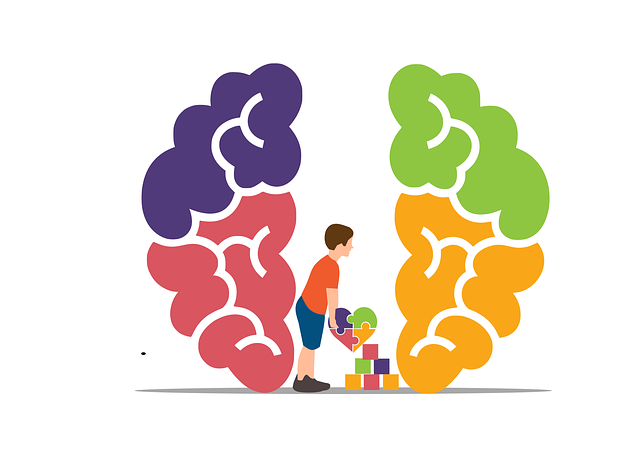Denver Womens Issues Therapy (DWIT) emphasizes risk assessment as a core principle for safe and effective mental health practices, integrating communication strategies, Mind Over Matter principles, and cultural sensitivity. This holistic approach prioritizes client safety, especially for vulnerable populations dealing with trauma or chronic conditions. By conducting thorough risk assessments, DWIT professionals foster secure environments conducive to healing and growth. Continuous improvement, evidence-based practices, policy updates, staff training, and innovative resources further strengthen risk management, ensuring safe therapeutic spaces in a dynamic field.
In the realm of mental health care, risk assessment is an indispensable tool for ensuring patient safety. This comprehensive guide explores the vital practices at Denver Women’s Issues Therapy, offering a robust foundation for safe clinical operations. We delve into identifying potential hazards and vulnerable populations within therapeutic settings, providing effective risk management strategies, and emphasizing continuous monitoring as key elements of a dynamic safety framework. By implementing these techniques, mental health professionals can navigate complex situations with enhanced preparedness.
- Understanding Risk Assessment in Mental Health: A Foundation for Safe Practice at Denver Womens Issues Therapy
- Identifying Potential Hazards and Vulnerable Populations in Clinical Settings
- Implementing Effective Risk Management Strategies: Tools and Techniques for Professionals
- Continuous Monitoring, Evaluation, and Adaptation: Ensuring Safety in Dynamic Theraputic Environments
Understanding Risk Assessment in Mental Health: A Foundation for Safe Practice at Denver Womens Issues Therapy

Risk assessment is a cornerstone of safe and effective mental health practice, especially at institutions like Denver Womens Issues Therapy (DWIT). At DWIT, understanding risk assessment goes beyond merely identifying potential dangers; it involves cultivating a comprehensive approach that integrates communication strategies, Mind Over Matter principles, and cultural sensitivity. This holistic perspective equips professionals to anticipate and mitigate risks in diverse client populations.
By prioritizing these key aspects, Denver Womens Issues Therapy fosters an environment where mental health practitioners can provide compassionate care while minimizing potential hazards. Effective risk assessment at DWIT means leveraging open dialogue to uncover hidden vulnerabilities, applying evidence-based Mind Over Matter techniques to empower clients, and adapting practices to respect and accommodate cultural differences. This multifaceted strategy ensures that both therapists and clients are equipped to navigate complex emotional landscapes securely and with enhanced resilience.
Identifying Potential Hazards and Vulnerable Populations in Clinical Settings

Mental health professionals working with diverse populations, such as those seeking Denver Women’s Issues Therapy, must be vigilant in identifying potential hazards within clinical settings. These environments can present unique risks for both clients and practitioners, especially when addressing sensitive issues like depression prevention and self-esteem improvement. Vulnerable populations, including individuals experiencing trauma or suffering from chronic mental health conditions, require careful consideration to ensure their safety and well-being.
Hazards may manifest in various forms, such as unsanitary conditions, inadequate staff-to-patient ratios, or a lack of crisis intervention protocols. For instance, in the context of self-care routine development for better mental health, an unsafe environment could hinder clients’ ability to practice healthy coping mechanisms. Thus, thorough risk assessment is crucial to identify and mitigate these hazards, fostering a therapeutic space that promotes healing and growth for all involved.
Implementing Effective Risk Management Strategies: Tools and Techniques for Professionals

In the dynamic field of mental health therapy, especially within Denver Womens Issues Therapy, effective risk management is paramount to ensure both client safety and professional well-being. Implementing robust risk assessment tools and cultivating a culture of continuous improvement are crucial steps towards mitigating potential hazards. Mental health professionals can leverage advanced techniques such as comprehensive risk evaluation forms and evidence-based practices like Compassion Cultivation Practices to anticipate and address risks proactively. Regularly updating policies and procedures, coupled with ongoing staff training, allows therapists to stay adept at navigating complex scenarios.
Complementing these strategies, the integration of innovative tools like Mental Wellness Podcast Series Production and engaging resources such as Mental Wellness Journaling Exercise Guidance can further enhance risk management. These initiatives not only empower professionals but also equip them with diverse methods to support clients’ mental wellness journeys. By embracing a proactive approach, Denver Womens Issues Therapy professionals can create a secure environment that fosters healing while mitigating potential risks.
Continuous Monitoring, Evaluation, and Adaptation: Ensuring Safety in Dynamic Theraputic Environments

In the dynamic realm of Denver women’s issues therapy, continuous monitoring and evaluation are paramount to ensuring safe and effective therapeutic environments. Mental health professionals must adapt their approaches in real-time, as client needs evolve and new challenges arise. This ongoing process involves regularly assessing risk factors, such as changes in client mood, behavior, or stressors, and promptly adjusting treatment plans accordingly. By staying vigilant and proactive, therapists can foster a secure space that promotes healing and growth.
The ability to monitor progress and adapt practices is further enhanced through collaboration with specialized organizations like the Stress Management Workshops and Mental Wellness Coaching Programs Development groups. These entities offer valuable resources for Denver-based therapists, providing insights into innovative strategies for stress management and cultivating positive thinking. By integrating these techniques into their practices, mental health professionals can better support clients navigating complex emotional landscapes, ultimately contributing to improved mental wellness outcomes in a constantly changing therapeutic environment.
Mental health professionals play a crucial role in helping individuals navigate complex journeys towards healing. Effective risk assessment is not just a tool; it’s an essential foundation for safe and effective practice, as demonstrated by Denver Women’s Issues Therapy. By identifying potential hazards within clinical settings and implementing robust risk management strategies, professionals can create dynamic therapeutic environments that foster recovery. Continuous monitoring and adaptation are vital to ensuring the safety and well-being of both clients and practitioners. Embracing these comprehensive approaches allows mental health professionals to provide high-quality care while mitigating risks in an ever-changing landscape.














